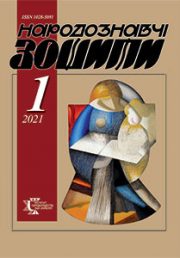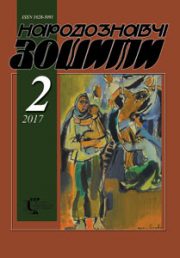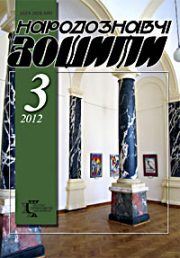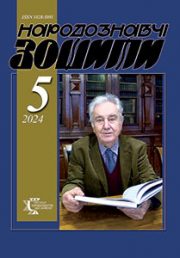The Ethnology Notebooks. 2019, № 4 (148), 807—810
УДК 94:[37.011-051:17.035.3](477-2)”19/20″
DOI https://doi.org/10.15407/nz2019.04.807
DIDACTIC ELEGANCE IN UPBRINGING LOVE OF NATIVE LAND
PAVLYUK Stepan
ORCID ID: http://orcid.org/0000-0003-0975-8099
Doctor of Historical Sciences, Professor
Academician of the National Academy of Sciences of Ukraine
Director,
Institute of Ethnology, National Academy of Sciences of Ukraine,
15, Svobody ave., 79000, Lviv, Ukraine.
Contacts: e-mail: ethnolog@gmail.com
Abstract. In the historical background of Ukrainian patriots who lived and worked in order to ensure that national life was warmed up in every home, in each village, town and city, the figure of a teacher, scientist and public-political figure of Grigory Demian is outlined. So, this is the object of our study, and the subject of the article is the pedagogical work of G. Demian, aimed at educating young people on the principles of love for his native land, his history, which has not yet been properly disclosed. Hence the purpose of the article is to find out the directions, forms and methods of his pedagogical activity, to determine the environment in which he worked, to give an assessment of his teacher’s skill. This determines the relevance of the topic.
The chronological boundaries of the study are mid-twentieth century — the beginning of the twenty-first century, time of the life and creative activity of the Teacher.
The source of the writing of this intelligence was the memory of a student, an inmate and followers of G. Demyan, nowadays academician of the National Academy of Sciences of Ukraine.
In the memoirs of the author of this article it is noted the Slavonic period, where G. Demian was engaged in national-patriotic education of students at the lessons of history and in extracurricular activities, in particular, excursions, trips to places of prominent people, historical events, etc.
Demyan won enormous respect among his students. The seeds of science sown by the Teacher sprouted with valuable fruits. His students became scientists, scientists of the state level, and most importantly — decent citizens of Ukraine.
And on the occasion of the 90th anniversary of the birth of the Teacher we make up a sincere deep wreath of love, respect and honor.
Keywords: teacher, history, native land, patriotic upbringing, love to the Motherland.
Received 14.06.2019







